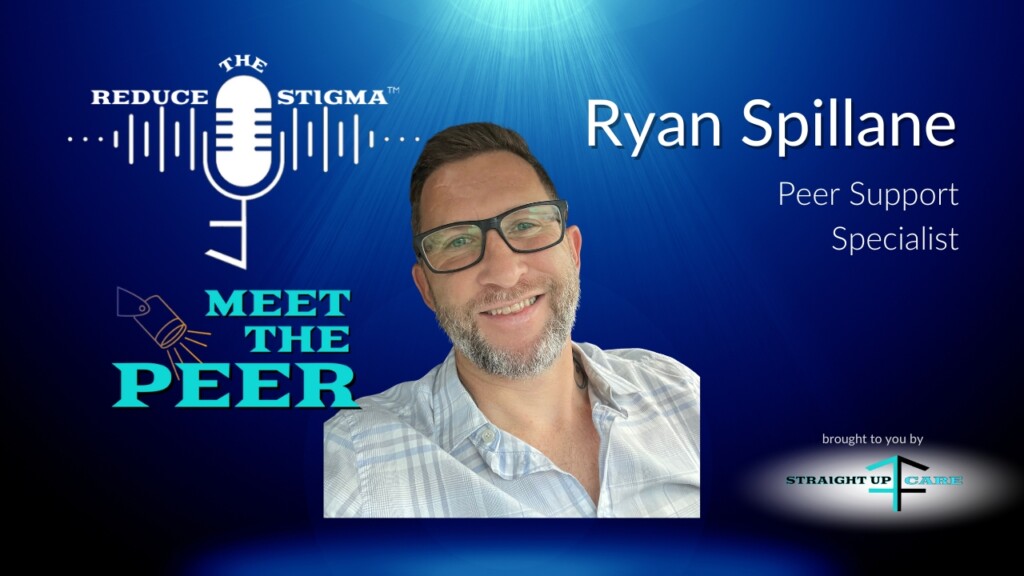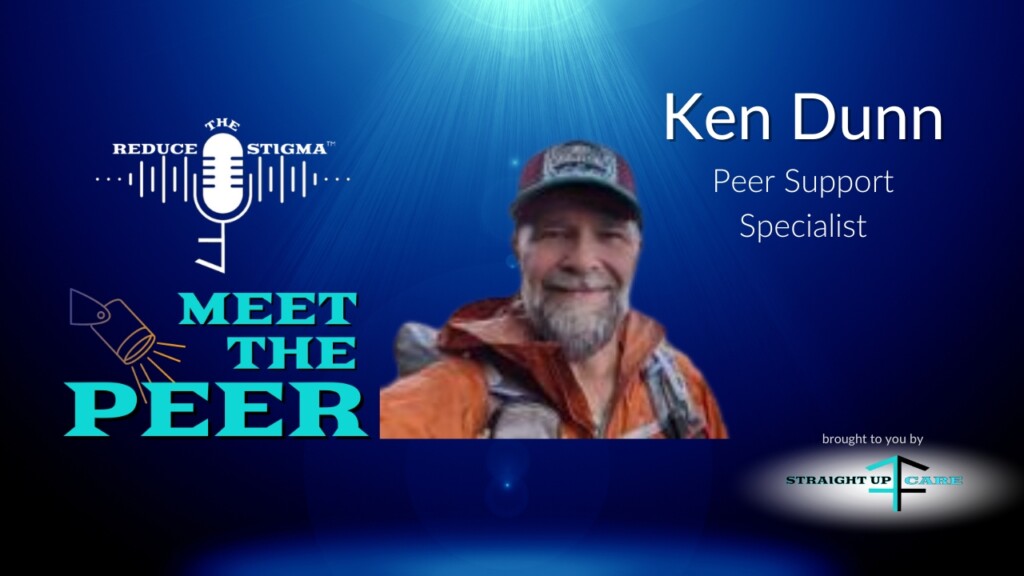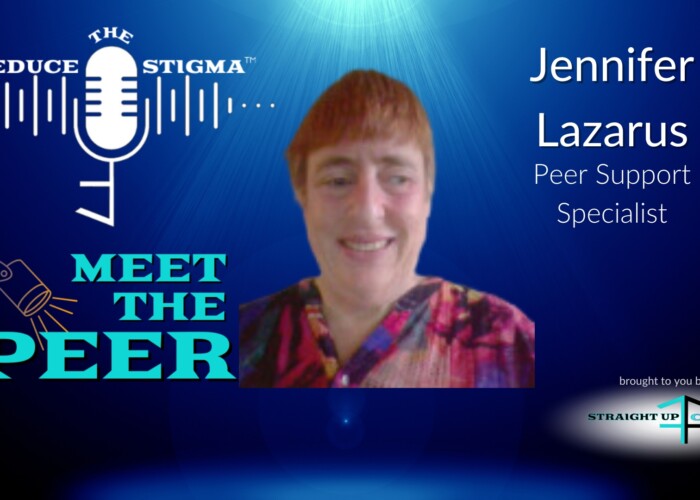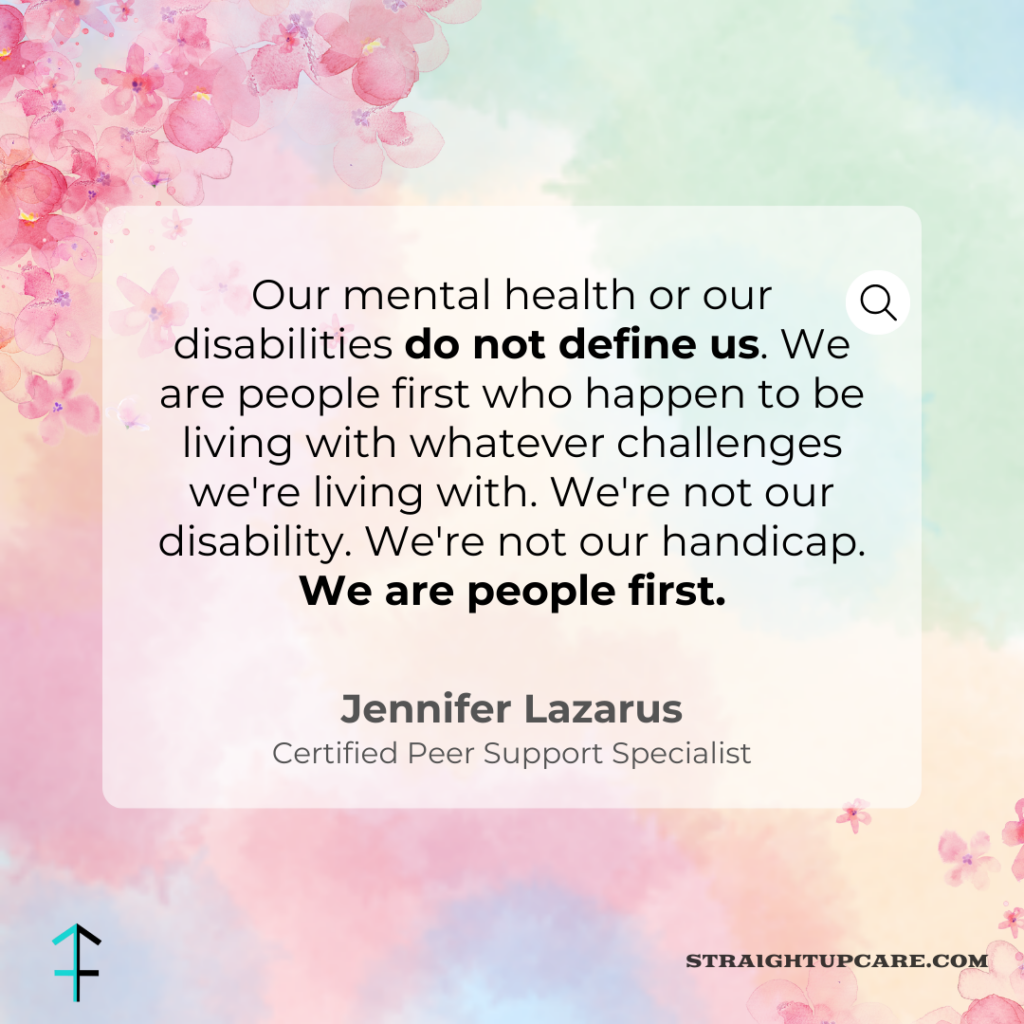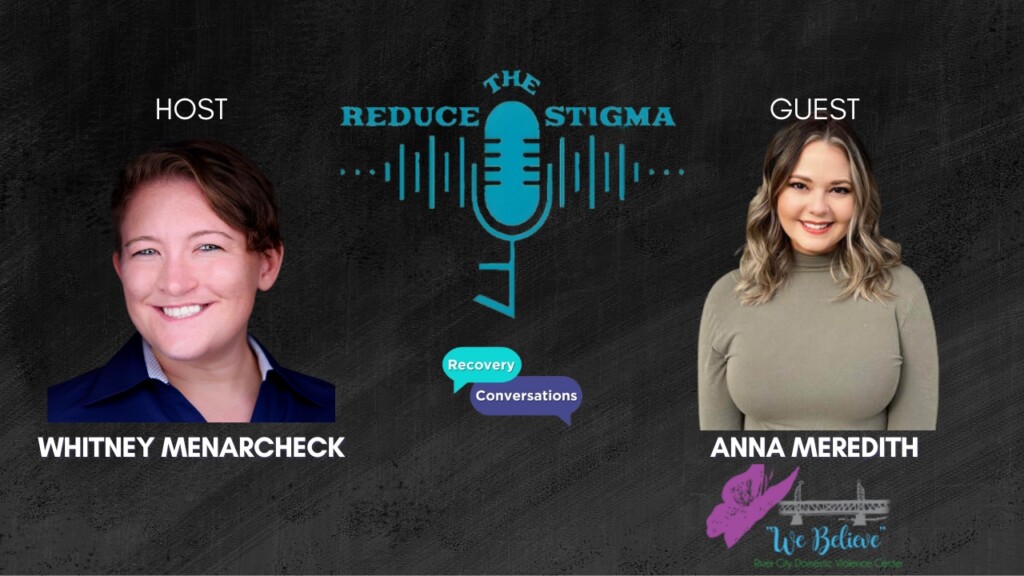Whitney Menarcheck | she/her (00:01)
Today’s conversation is with Mary Beth O ‘Connor, author of From Junkie to Judge, which shares the story of Marybeth recovering from methamphetamine use and eventually taking a seat as a federal judge. Marybeth is a staunch supporter and advocate for all pathways to recovery and speaks about the potential harm that can be caused whenever an individual is mandated to a certain pathway. So stay tuned. I’m sure you’re going to enjoy this just as much as I did as we embark on this wonderful conversation and continue to reduce the stigma.
Whitney Menarcheck | she/her (01:40)
Hello and welcome to Recovery Conversations. I’m your host, Whitney Menarcheck, and today’s conversation is with Mary Beth O ‘Connor, a retired federal administrative law judge, director, secretary, and founding investor for She Recovers Foundation, a director for LifeRing Secular Recovery, a member of the Advisory Council for the Hyer Calling Foundation, and the author of From Junkie to Judge. Hi, Marybeth. Thank you so much for coming on today and speaking with me.
Mary Beth O’Connor (02:09)
Thanks for having me. Thank you.
Whitney Menarcheck | she/her (02:12)
Well, it is just, I mean, your background alone, your accolades are significant. And, you know, to have an opportunity to speak with you really gives an opportunity for our audience to really understand what it’s like to be someone from a very, you know, respectable profession in recovery. So to get started, let’s just ask. Formal -ness aside, formality aside, can you introduce yourself? Who is Mary Beth?
Mary Beth O’Connor (02:49)
So the subtitle of the book is One Woman’s Triumph Over Trauma and Addiction because for me those things were really closely connected and they are connected for a lot of people. So I grew up in a violent household, I mean physically violent, sexually violent. My mother wasn’t really connected to me or interested in me and it sort of created the type of like stress and anxiety and depression at times. Even had OCD life symptoms for a while. And that really made drugs attractive to me. So when I found my first drug, which was alcohol, and it was Boone’s Farm Strawberry Hill wine, which a lot of people are familiar with, what I noticed was how much better it made me feel. And so that made it very appealing. And so I pursued alcohol heavily from the beginning, added in weed and pills and acid, and found my drug of choice, which was methamphetamine when I was 16. And I was shooting meth by 17 and in full bore addiction in high school and I didn’t get sober till 32. So I did go to college during there and I did a little better but still it was a really long haul and I was in a pretty pretty bad place by 32 years old.
Whitney Menarcheck | she/her (04:01)
In that 17 to 32, those are some very foundational years, right, for establishing who you are in adulthood, what pathways you can live. Can you tell us about at 17, what you were looking at, what your future was about to hold for you?
Mary Beth O’Connor (04:20)
Well, school had always been my one positive experience. I did well in school. I got a lot of positive attention in school. And so that was sort of my place where I felt seen. And so I had always done well. And in high school, I was still doing well despite my excessive drug use until toward the end of my senior year, maybe the second half of my senior year. So I grew up in a blue collar family. I mean, my mother was a blue collar secretary and my stepfather worked at the steel mill but I was it was always assumed I was going to go to college and no one saved any money which turned out to be a problem later but I always assumed I was going to college and so I had actually been accepted I lived in central Jersey and I came to California for college and graduated from Berkeley but at the same time it was really it was really frightening for me when I was actually ready to go to college Because I was worried about losing access to meth right so even that was complicated But I did do better I did better my first three and a half years of college and you know mostly used on the weekend I decreased my the amount that I was using but I had this really bad Kidnapping and raped by three men for six hours and moved in with a violent boyfriend. It was sort of like I lost my grip again, and I started using meth again on a daily basis my senior year of high school in January. And so the next 10 years were just, you know, professionally I couldn’t hold a job. I say I worked my way down the corporate ladder. But also it was just physically debilitating, emotionally debilitating. So all that promise and all the hopes of what my academic success had set up for me, I lost all of those things by the time I was 32.
Whitney Menarcheck | she/her (06:05)
Right. And if you don’t mind, I’m going to read a quote that really stood out to me when I read your book. It’s quote, people often ask how someone so smart could become an addict, but brain disorders don’t discriminate based on intellect. And that is exactly what you, Berkeley is a phenomenal school. You were succeeding in school academically, had all of this promise and opportunity ahead of you. Certainly not an easy childhood and adolescence, and they’re right there. How could someone so smart become an addict? Could you speak a little bit more about that? Because I think that is such a misconception.
Mary Beth O’Connor (06:47)
It’s true, I mean when we see successful people like say, you know, somebody in the music industry or an actor or anyone who sort of seems to have it all and then they lose it because of a substance use disorder, people act surprised. But the reality is that most people use substances to excess. I don’t mean the casual users or the, you know, I mean most people use all drugs casually, but for the subset of us who use them to an extreme, who develop a substance use disorder,there is trauma underneath or is there is another mental health condition underneath. So it’s a very high correlation between those two things and substances and those things certainly do not discriminate based on academic success or intellect. So the root cause for me was a root cause for many other people and the solution that seemed to work in the beginning is the solution that many people in those circumstances choose.
Whitney Menarcheck | she/her (07:47)
Absolutely. And in many ways, you know, what is in some cases a protective factor that high intellect can almost be a risk factor in others because people overlook the person who can get straight A’s. Oh, if they’re getting straight A’s, then they’re doing just fine. Did you experience that where people just didn’t understand that you could be both a stellar student and someone in pain?
Mary Beth O’Connor (08:12)
I think that’s true. I mean, I did so well that even if I would come in with, let’s say, bruises, nobody thought anything of it. I mean, I wouldn’t go to school with like broken arms or anything, but there were some signs of people living. But also, I should depression signs. Like there was a period in grammar school where I didn’t take a shower as often as I should have. I often would look sort of somewhat unkempt. Later, I went, I got out of that, but there were signs. I was really verbally aggressive, like to teachers in class sometimes. I could be, triggered those are also signs that I mean so it’s you know was it just normal teenage behavior or is there something more going on and then even my senior year of high school when I lost a lot of weight I mean it was already thin but I was bone thin I was falling asleep in class my face didn’t you know didn’t look well and I was missing a lot of school. I told them while I was having problems at home, so they let me make up the work, but no one said, is there anything else going on? You don’t look well. And I just, I think they just didn’t see it because as you say, I was generally succeeding.
Whitney Menarcheck | she/her (09:19)
Right, right. And the young Marybeth, that 17 year old with, you know, so much to offer the world and still so much pain to have to navigate. And you said that then you went on, you did a little bit better in college and started climbing down the professional ladder. That’s something that, you know, people talk about a functioning addiction where you can navigate both worlds, but can you tell me when did it come to a point where you realize you were not where you wanted to be and that climbing down was not the direction for you?
Mary Beth O’Connor (10:04)
Well, I mean, I will say the climbing down started right after college. So I’ve actually been accepted to Berkeley Law right after I graduated from college. But by the time I got there, it’s six months after, nine months actually, after I had started using meth again on a basically a daily basis. And so when I got to Berkeley Law in the fall, I couldn’t do it. Like I couldn’t get there. I couldn’t, I missed school like one time for three weeks. You know, I just couldn’t get there for three weeks. So I had to withdraw because I knew it was going to fail out because I wasn’t able to get there and I wasn’t able to do the work. Not intellectually unable, unable because of my addiction. So that was like a major loss. And then the jobs, every job I had was like less money and less responsibility and I held it for less time. So that was, you an obvious pattern that I tried to ignore And so by 32, I was struggling to work. I really was unable, my last job was word processing and I didn’t have the energy after I got fired from that to even put a resume together. But also my body was having physical problems and I was just exhausted. Like, I mean, the deepest of exhaustion and I was just emotionally debilitated. I felt trapped. My partner was ready to throw me out. So it was sort of like all of those things in combination that made me finally say, you know, well, what’s my good reason? Maybe it would be a good idea if I went to rehab.
Whitney Menarcheck | she/her (11:25)
And so you did. And, you know, one of the unique things about your story is the lack of involvement in the criminal justice system. And I’d love to circle back to that in a little bit, but normally, first experience in treatment can come from a mandate. And that was not the situation for you. You go to your first rehab and… Tell us about that experience. What was the, I don’t want to say ambiance, but what was the message you were receiving?
Mary Beth O’Connor (12:03)
So in my mind, I was going into a medical facility for medical treatment. And so when I got there, I found out on the first day that they were adamantly and exclusively a 12 -step house. And so 12 -steps is alcoholics anonymous, narcotics anonymous, all of the anonymuses. And for a proportion of people, it’s a really good fit. Some people really like that program and they do well, but it’s not the right fit for everyone. And it was a terrible fit for me. And it wasn’t the biggest problem wasn’t they offer 12 -steps. It was that they denied there was anything else. And they kept telling me that if I didn’t do what I was ordered to do, which was do everything that false stuff says. They said I was going to fail. So I raised questions about the higher power. I didn’t, wasn’t turning my will and my life over. I didn’t agree I was powerless. I didn’t like to focus on defects. I mean, it just was a terrible fit. But they swore that there were no other options and I had to do it this way. And that was a real surprise for me. And it was a challenge because it was hard for me to trust my own judgment. I mean, I had been using drugs, you know, for 20 years. I was really debilitating.
Whitney Menarcheck | she/her (13:09)
Mm -hmm.
Mary Beth O’Connor (13:12)
rehabilitated as I said and now already the first day there I have to I’m challenging the Orthodoxy and the authority and it was hard because I didn’t know was I think I’m telling me I was arrogant. I was self -willed run amok and and I wasn’t sure. Well, maybe they’re right. Maybe I will fail if I don’t do it that way. But I also knew I couldn’t so I needed to trust my own judgment. But it turned out that they actually weren’t telling me the truth. There were other options. And so when I found them, it was a great relief. Now, initially, I did everything I could to pull some ideas out of 12 steps. I mean, I read all the books and went to meet
Whitney Menarcheck | she/her (13:50)
Mm -hmm.
Mary Beth O’Connor (13:52)
But when I found the other alternatives, it was a real, again, a weight off my shoulders to know that other people had succeeded other ways. And that gave me permission or a reassurance that I was on the right path, that thinking about what will work for me, what’s the right techniques for me, but also being proactive about looking for ideas and strategies and techniques. I wasn’t trying to shut the door on anything. I just needed to…
Whitney Menarcheck | she/her (14:19)
Right.
Mary Beth O’Connor (14:22)
I needed to filter everything for do I think this is a philosophy that will work for me? Do I think this is an approach that will work for me? Do I think it’s a strategy that will work for me? And so once I saw that other people had done it, that took some of the fear out of it and I was just able to more confidently proceed by doing it a way that I thought would work best for me.
Whitney Menarcheck | she/her (14:45)
And what were some of those other methods, other pathways that resonated for you?
Mary Beth O’Connor (14:52)
So I’ll emphasize for the younger people, it’s 1994. I actually just had 30 years of sobriety in January. So, thank you. So it’s 94, there’s no Google, okay? It doesn’t exist. So I got home from rehab and I thought…
Whitney Menarcheck | she/her (14:59)
Oh, congratulations!
Hahaha
Mary Beth O’Connor (15:07)
Is it true that there’s no other way? So I got my card. I went to the library. I did the research and it turned out even in 94 there were other options. And so I first found Women for Sobriety, which is the first modern secular alternative. It’s a peer support group with a different philosophy. For example, in a WFS meeting, you don’t introduce yourself the 12 step way. The 12 step way is I’m Mary Beth and I’m an addict. In WFS, the introduction is I’m Mary Beth and I’m a competent woman. And that was really
Whitney Menarcheck | she/her (15:36)
Oh wow.
Mary Beth O’Connor (15:37)
appealing for me. And then I also found rational recovery which exists a little but basically today it’s smart recovery and I found SOS which I think has three meetings left but basically today that’s life ring secular recovery and I’m on the board for life ring as you know. So these programs they’re all different but Some of the core ideas that are similar is it’s more of a self -empowerment approach. It’s more focused on your efforts and your motivations and life in particular, one of its fundamental precepts is a personal recovery plan, which is that my plan and your plan won’t be the same most likely because we’re different people in different places with different worldviews and different techniques work for us. And so that’s what I did. I built a personal recovery plan.
Whitney Menarcheck | she/her (16:15)
Right.
Mary Beth O’Connor (16:26)
So it was a belief to find the other groups and I just never followed anyone. I continued it the same way. I read the books, I went to the meetings, and I synthesized the ideas and built what Liferick would call a personal recovery plan.
Whitney Menarcheck | she/her (16:41)
Just even thinking about the way that you would introduce yourself in a different way, you know, I am Mary Beth, I am a competent woman. And that, or I apologize if it was confident woman, competent woman, that comes to the fact that for so many people addiction becomes their primary identity. And even in that first switch in that language, you change the narrative to say, oh no, I’m Mary Beth first.
Mary Beth O’Connor (17:06)
Yes.
That’s right. And I will say this. I like this uses as an example that what works for us at one point in our recovery may not serve us later. So in the beginning, I thought it was useful to say, I’m Mary Beth and I’m an addict over and over and over again. But by the time I got home, I was feeling less comfortable with it because I felt like I was announced. I was saying it like it was the essence of who I was. It was my core self. And that wasn’t true. And so when I found that I’m a competent woman, that meant me sort of where I was at. That was more consistent with how I was starting to think about it. And so it’s an indicator that different techniques over time will change, but also that what works for some people is not gonna work for others. And we need to be open to people finding their own path and making their own choices.
Whitney Menarcheck | she/her (18:00)
Absolutely. And even just as a human who’s developing, who we all go through different processes in our life. There are different things that are important to us. You know, teen and adolescent, it’s about our identity, who we are as independent beings. Then later in life, it’s about leaving a meaningful purpose in this world. And even at those different developmental stages, you can have to reprocess trauma, reprocess recovery and addiction. And it may need something different than what, you know, for you celebrating 30 years, your recovery today and what you’re doing for yourself, I’m sure is very different than what it was 30 years ago.
Mary Beth O’Connor (18:42)
Yeah, and when I talk to newcomers, I talk a lot about that, that our plan, whatever it is, is going to change over time, right? And there’s a couple reasons for that. I mean, one is that hopefully we’ve had some initial successes so we can set our second goal or our third goal, right? I mean, we’re not still working on goal number one in that area. So the plan’s going to be iterative and change over time. And that’s an important part of recovery. And I will say… When my rehab told me there was one and only way, they actually put my recovery at risk because if I would have believed them, I would probably have given up. But also, it wasn’t true. So why did you say that? But on the other hand, taking ownership of my plan and sort of really doing an analysis like, well, okay, that’s not a good fit. Who am I? What do I think would work better? And then, you know, sort of proactively gathering information and synthesizing it and then setting my priorities.
Whitney Menarcheck | she/her (19:14)
Mm.
Mary Beth O’Connor (19:39)
and my initial goal and my initial plan and implementing it and then saying goal number two and plan number two and it turns out that skill set works for everything and so in the long run it actually did strengthen me that I took control of my recovery and it built up my sense of competence and confidence to sort of handle all areas of life so it worked out in the long run even though they put me at risk when they told me that in the beginning.
Whitney Menarcheck | she/her (20:08)
That and the amount of investment whenever you’re the owner of the plan, I think it is deeper too than when someone is telling you. And so you said they put me in my recovery at risk. There’s a lot of mandates that individuals who are actively using drugs or who are in recovery face. And a lot of times it comes from the justice system. What are your thoughts on?
Mary Beth O’Connor (20:14)
Yes.
Whitney Menarcheck | she/her (20:35)
you know, maybe mandating 12 -step meetings or mandating a certain type of treatment model.
Mary Beth O’Connor (20:42)
So, drug courts have a wide variety of quality, and some are better than others. But some of the issues that are not uncommon are… much too common. For example, mandating 12 -step as peer support. Well, first of all, you actually aren’t allowed to do that because the courts that have looked at it have found 12 steps to be religious and you can’t mandate religion. You can offer 12 steps as one of the options, but you can’t make it the only choice. But the other problem is that there has been a study, it’s called the peer alternative study. It compared the effectiveness of AA, lifering, women for sobriety, and SMART and found that they’re basically all equally effective. So there’s no data as to why you would mandate 12 steps. But the other problem with it is that when you do that, you’re forcing some people into a program that’s not the best fit for them. And therefore you’re on you’re reducing their odds of success when your goal is supposed to be to increase their odds of success, right? So that’s a problem with 12 steps. But there are other issues as well. I mean, not with 12 steps with me and dating 12 steps only. Again, I support 12 steps when it’s the right
Whitney Menarcheck | she/her (21:50)
Yes, yes.
Mary Beth O’Connor (21:50)
right fit. But there are other problems. Drug courts, for example, often force everybody into a certain kind of treatment because they were arrested for drugs. Well, not everyone who was arrested for drugs actually has a substance use disorder. And the other problem with that is that there aren’t enough treatment beds in most communities. And now you’re taking up treatment beds with people who don’t actually need treatment for a substance use disorder or don’t need the kind of treatment that you’re forcing them into.
Whitney Menarcheck | she/her (22:03)
Mm -hmm.
Mary Beth O’Connor (22:16)
Another problem is that a lot of drug courts will not allow medication assisted treatment. So for opiate use disorder and alcohol use disorder, although not yet for stimulants, for stimulus they’re still looking, but for opiates and alcohol, there’s medications. Let’s just take for opiates. Reduces the risk of overdose by 50 to 60 % and increases the odds of getting sober or having a significant reduction in your intake significantly. These are the gold standard of medical treatment these drugs. And a lot of drug courts won’t allow them. They’ll say, well, that’s, you know, methadone is an opiate. Well, yeah, but it’s a very different type of opiate than is heroin or fentanyl. But the other problem is that actually the Pennsylvania courts, they just had to settle with the Department of Justice because it’s an Americans with Disabilities Act violation to not allow people medical treatment that’s appropriate for their condition. So these are some of the problems with drug courts. On the other hand, some drug courts will
Whitney Menarcheck | she/her (22:49)
Right.
Right.
Mary Beth O’Connor (23:15)
are more based on the science of change and how the process really works. I’ll say one other problem. Some drug courts expect perfect abstinence or people pay a very drastic penalty. But the truth is that perfect abstinence is rare. And so you’re setting people up for failure. On the other hand, other drug courts understand that and they’ll work with the person to try to, you know, what else do you need for support or, you know, we’re going to give you another chance or whatever. So it’s not the
Whitney Menarcheck | she/her (23:33)
Yeah.
Mary Beth O’Connor (23:45)
that I’m against drug courts is just if we’re well if we’re going to have them we need to make sure that they’re evidence -based and right now a large percentage of them are not evidence -based.
Whitney Menarcheck | she/her (23:55)
Right. And you speak specifically for drug courts. I ran a substance use program in a large county jail. And so I worked with a lot of judges, not even just drug court. And I saw the same thing. And I had to do all of the assessments to determine does someone need a certain level of care. And you spoke to wasted resources. And it was this mindset that simply possession or admitted use, equals absolute disorder, addiction, dependence, let’s send them off to rehab, rip them out of the community and any supports they may have. And I think you touched on something so overlooked, which is what are the appropriate interventions or responses and where does the person need to be and where do they want to be? Not just where.
Mary Beth O’Connor (24:50)
Right.
Whitney Menarcheck | she/her (24:51)
Okay, it worked for this person. So we’re going to cookie cutter you your way into recovery.
Mary Beth O’Connor (24:56)
That’s right. That’s right. And I will say the other side of it for me. And it is, you’re right. It’s all judges, but it’s also probation, parole, family court. If you want visitation with your kids, it permeates the system, right? These issues. Um, but my other problem with it in general is that I don’t believe in criminalizing substance use disorder. So I really think we, you know, I support decriminalization for personal use and there’s, and there’s a few, well, I have a list of reasons, but my top three, my top three are number one, that even the government acknowledges that substance use disorder is a
Whitney Menarcheck | she/her (25:21)
You
Mary Beth O’Connor (25:26)
disease or disorder and yet we criminalize it. So that’s a contradiction. There are around half a million people today in jail or prison just for possession. I mean not for not for dealing not for any other related crimes, pure possession. But one big problem with that to get to your resources point as well is that we can treat three to four people for the same amount of money as we incarcerate one. Right? So that’s not a good use of resources. On top of which there is a vast racial disparity
Whitney Menarcheck | she/her (25:36)
Great.
Great.
Mary Beth O’Connor (25:56)
in the way we enforce our drug laws. And so people of color and whites use drugs at pretty much the same rates, but the rate of getting arrested is higher for a person of color, the charges tend to be higher and the sentences tend to be longer. So to me, that’ll also undermine the legitimacy of our system. So I have other reasons, but those are my top three big hits as to why I think we need to do decriminalization for personal use.
Whitney Menarcheck | she/her (26:17)
Great And that ties into your story. You experience an arrest and you wrote that because you didn’t have a pre -existing record and you were a successful student with an acceptance into a prestigious school that you were able to get probation and eventually have it expunged. What is that impact on someone’s recovery trajectory, being able to have a record expunged versus continued presence?
Mary Beth O’Connor (26:59)
Yeah, so I didn’t just I wasn’t just allowed to have an expunge usually to get a record expunge you have to like wait a certain amount of time and then petition the court in my Sentencing order the judge said if I didn’t get arrested again for five years I could just file and get it expunged and that’s what I did and said that’s a rare thing but you’re right I was a you know, I was it was in a small town. They knew I didn’t have a history of arrest. I they knew about my academic success I was going off to a big college in Berkeley in California and they and they treated me
Whitney Menarcheck | she/her (27:17)
Right.
Mary Beth O’Connor (27:29)
treated me lightly. Had they not, I really don’t know I would have ever made it to college because if I would have been incarcerated or if I would have been forced to stay there for a couple years, I don’t know if I would have made it to school. Because the reality is that a drug conviction, particularly a felony conviction, impacts people’s ability to get work. It can impact your ability to get housing. It can impact a lot of benefits programs. You’re not eligible for a lot of benefits if you have that kind of a record. It disrupts the family. There’s a lot of ramifications. But the upside of that is that for those last 10 years that I used, I had meth on me every day. And I was stopped multiple times by the police for like little fender benders or some kind of a motor vehicle violation. And I wasn’t ever searched. But had I been searched, they would have found drugs on me. And so even if I would have started to have more charges, then I would have been put in a different box. And then I would have started to have heavy penalties.
Whitney Menarcheck | she/her (28:29)
Right.
Mary Beth O’Connor (28:30)
So I was in search because I was a white middle class woman in a neighborhood that didn’t have a high crime rate or a high crime rate. you know, problems. No, they have obvious, they have an obvious drug problem in that neighborhood. And so for multiple reasons, I was lucky in the sense that if I would have been a different color or in a different community, the odds of me being able to have only one charge, which was expunged and therefore much easier to get into law school, much easier to pass, you know, to get through the bar process, much easier to get through the judge background check, things would have been very, very different for me.
Whitney Menarcheck | she/her (28:43)
great. Absolutely. And just to think about, you know, 30 years in recovery, the work, the good you’ve done in the past 30 years, and I’m sure prior to you achieving your recovery, that’s a lot that could have been lost to the world because of, you know, discrimination and judgment and a broken system that sets people up for failure. And
Here we were able to talk to you today. You’re an author, you’re on multiple boards, you were a federal judge. You truly represent how valuable individuals in recovery are and the positive impact that they can have when we support individuals and give them opportunities to achieve their optimal self.
Mary Beth O’Connor (30:01)
That’s true. And I will say that’s a big part of why I use junkie in the title to my book. I mean, first of all, junkie to judge, right? There’s the alliteration. But, but I really wanted to show in a couple of words the whole arc and, and don’t get me wrong. I mean, we’re really focused today on not using stigmatizing language and I would never use that term for someone else, but it’s out there in the community. And I really wanted to own my, that I shop met for many years. I really wanted to own that in part, because when I see people on television that shoot meth, they’re presented like almost like a
Whitney Menarcheck | she/her (30:08)
Yeah.Right.
Mary Beth O’Connor (30:31)
like they’re animals in a cage, like they’re beyond our empathy, they’re not even really human. And I wanted to stand up and say, I did that too, not a couple of times for many years. And yet in recovery, I was able to become a judge. And so it’s not that I think judges the most important part of our recovery. It’s not. It’s just that that job has a certain social resonance. And so I wanted to help reduce the stigma by showing, you know, who we are in the middle of our active addiction and who we are. It’s very different, but also those people you see that you’re looking down on perhaps They are worthy of our help, you know They’re they’re really because they’re humans But they’re also worthy because their future could be very bright and they could be a valuable and contributing member to society if we can help them get out of the hell that they’re living in right now
Whitney Menarcheck | she/her (31:22)
Absolutely. And you know, one of the things you talk about in your book as well is the big R recovery, the reconnecting to your authentic self. And I sort of asked you at the beginning, who is Marybeth? But I’d like to ask you again, who is Marybeth today? 30 years in recovery.
Mary Beth O’Connor (31:44)
Well, I’ll preface it with the big arm recovery is also partly talking about how I, for me to be my true self, my authentic self, to be my best self, I didn’t have to just recover from the drugs. I had to recover from the trauma. When I got sober, I went into therapy and I was to my surprise, but correctly diagnosed with PTSD, which for me showed up as severe anxiety. And I had to go into treatment for that. And if I wouldn’t have been able to get that under control, I would never have been able to be,
Whitney Menarcheck | she/her (31:58)
Mm -hmm.
Mary Beth O’Connor (32:14)
you know, the best happiest version of myself. It was actually harder to get my PTSD and anxiety under control than it was to get my substance use under control. By two and a half years, I really never struggled with any cravings for substances again. I was in therapy for nine years, and even at that point, I was only basically 80 % recovered. It took me another 10 years to get another 15 % recovered. So many of us, when we walk in the rooms of substance recovery, we need to also address the mental health side if we’re going to first of all have the best chance of staying sober but also have the best chance of really having a full and productive and happy life and so I needed to do that. And for me now, what’s really important, especially since I’m retired, although my husband says I need to look that up in the dictionary because I don’t know what it means, but this is my opportunity to really give back in a new way. I’m able to now speak openly about my whole story without having to worry about professional ramifications. As you said, I have my book out, which I view as part of my stigma reduction, as part of my advocacy, as part of showing multiple pathway options. And I really
Whitney Menarcheck | she/her (33:07)
Hahaha!
Mary Beth O’Connor (33:29)
I’ve had pieces in the Wall Street Journal, the LA Times and others. I’m on the boards and I do a lot of speaking to a lot of different organizations. And this is, you know, it’s very rewarding for me to be able to part -time, part -time, do these activities to try to give back to my community and to try to help my community be better understood. But the other thing is that I’m also now able to be a good wife and a good friend and a good aunt and
you know, things that I could not do when I was using, right? I mean, you know, if you have small things, like if you invite me to your birthday party today, I will show up on time with the president and behave appropriately. You know, like that wasn’t what was happening when I was using, okay? That wasn’t it at all. So it’s all those small joys of being able to connect with people and have mutual relationships and to really be able to experience life, but also for me to be able to be productive. So,
Whitney Menarcheck | she/her (34:15)
Right.
Mary Beth O’Connor (34:29)
So I like intellectual challenges. I like my, you know, with work or whatever I’m doing to try something new. Writing the book was a new intellectual challenge. I didn’t know how to write it anymore. It actually requires certain skills that I had to develop. So, so it’s sort of all of those things are really where my life is today.
Whitney Menarcheck | she/her (34:41)
Hehehe. Wonderful. And as we wrap up, I’d like to ask you a question that I ask everyone. If people take one thing away from our discussion, what would you like it to be?
Mary Beth O’Connor (35:00)
I say hope, you know, I mean for the person who may be struggling with substances or with their trauma or with their mental health but also for their friends and family to know that look I had a pretty significant child abuse history, I had multiple sexual assaults, I lived with a violent boyfriend, I had a drug addiction for you know 15, 20 years and I think it started until I was 32, you know until 32 it didn’t look like I was ever gonna get better, it did not look good at 32 but I did, I was able to get better. And so, no matter where you are, there is a path forward. No matter where your family member or loved one is, there’s no reason to give up hope that they might be able to find a path out eventually.
Whitney Menarcheck | she/her (35:43)
Wonderful. Well, thank you so much, Marybeth, for coming on and speaking with me and sharing your experience, your lived experience, your journey. I was so touched reading your book, and I’m sure everyone who is able to come across it is as well. So thank you.
Mary Beth O’Connor (36:04)
Thank you. Thank you so much for having me.
Whitney Menarcheck | she/her (36:07)
All right, well, if you are interested in reading from Junkie to Judge, you can get it on Amazon, Barnes and Noble, and anywhere books are sold. We’ll also link to the book in our show notes. So check out From Junkie to Judge and certainly follow Mary Beth as she continues to use her story and semi -retirement to help us reduce the stigma. Thank you.
Mary Beth O’Connor (36:35)
Sure, thank you.
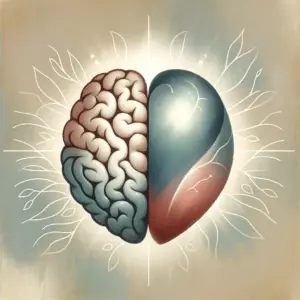
 1. Amplify the Voices of Individuals with Lived Experience
1. Amplify the Voices of Individuals with Lived Experience 2. Educate Yourself and Others
2. Educate Yourself and Others 3. Practice Self-Care and Encourage Others to Do the Same
3. Practice Self-Care and Encourage Others to Do the Same 4. Challenge Stigma and Discrimination
4. Challenge Stigma and Discrimination 5. Foster Peer Support Networks
5. Foster Peer Support Networks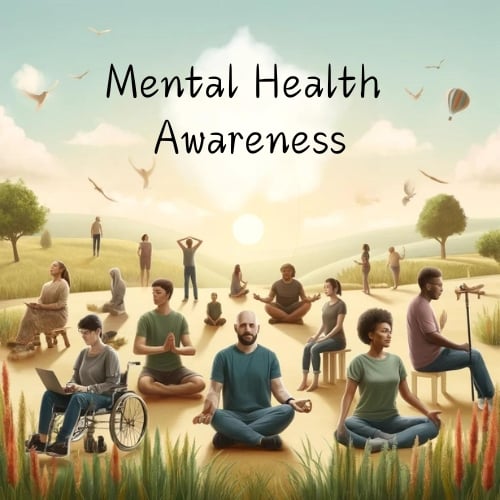
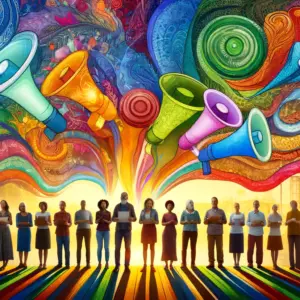 1. Amplify the Voices of Individuals with Lived Experience
1. Amplify the Voices of Individuals with Lived Experience 2. Educate Yourself and Others
2. Educate Yourself and Others 3. Practice Self-Care and Encourage Others to Do the Same
3. Practice Self-Care and Encourage Others to Do the Same 4. Challenge Stigma and Discrimination
4. Challenge Stigma and Discrimination 5. Foster Peer Support Networks
5. Foster Peer Support Networks
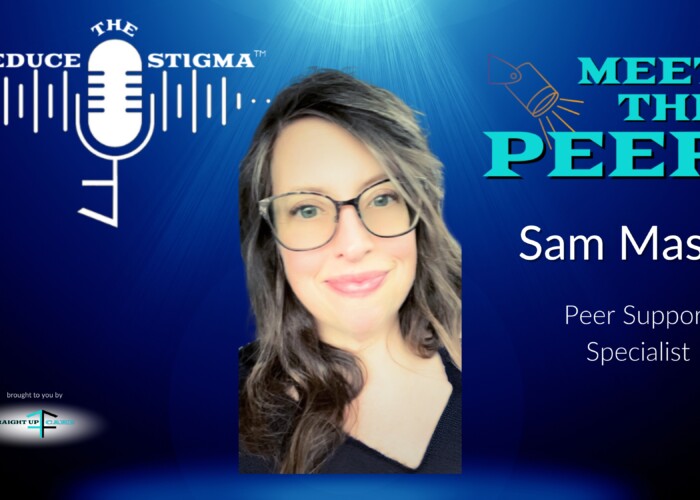
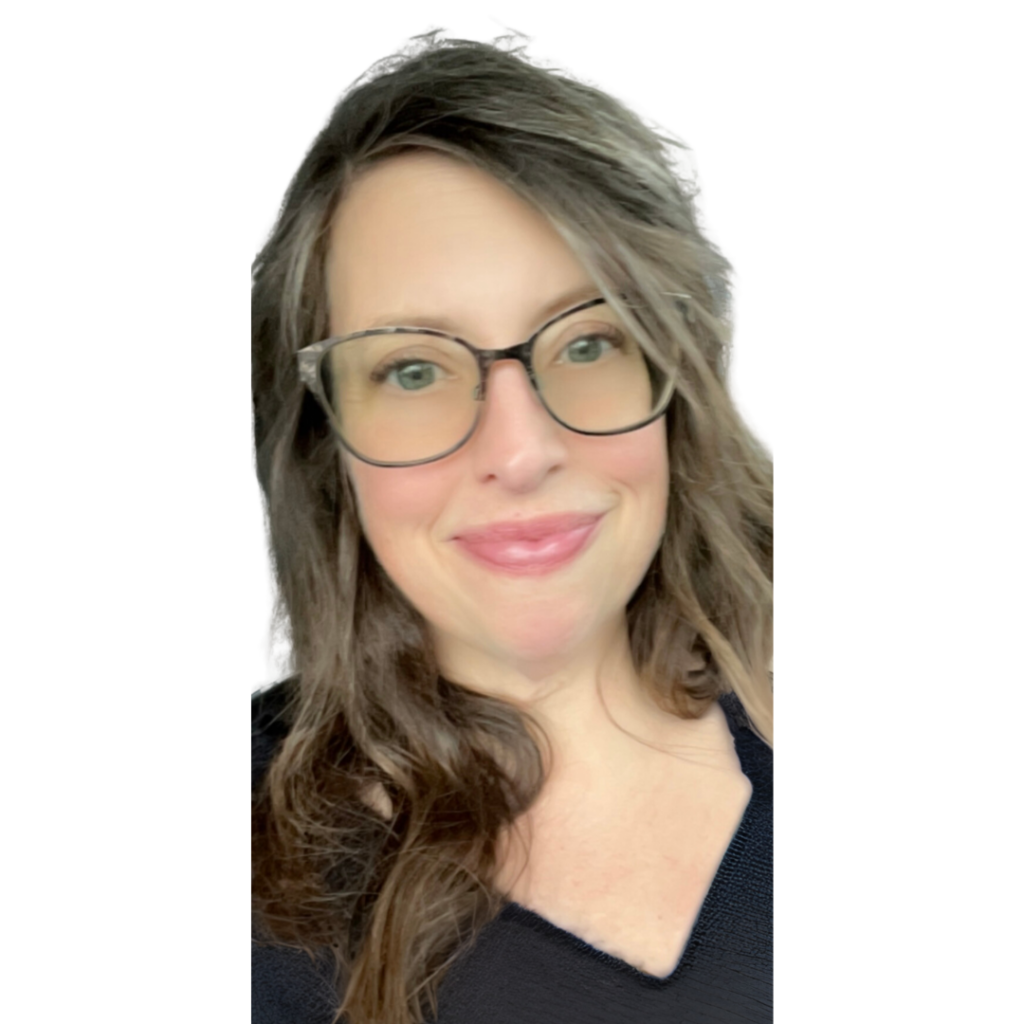
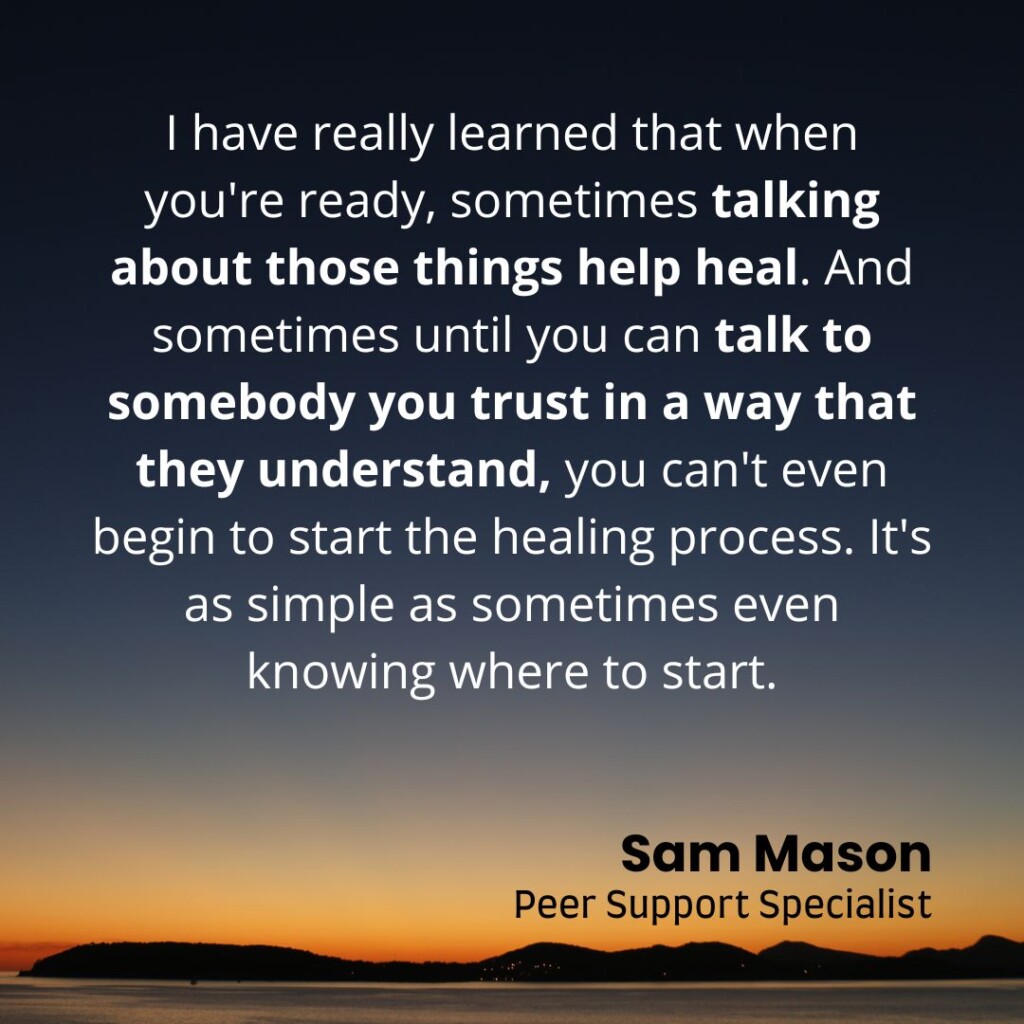
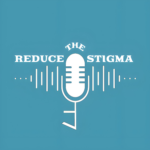


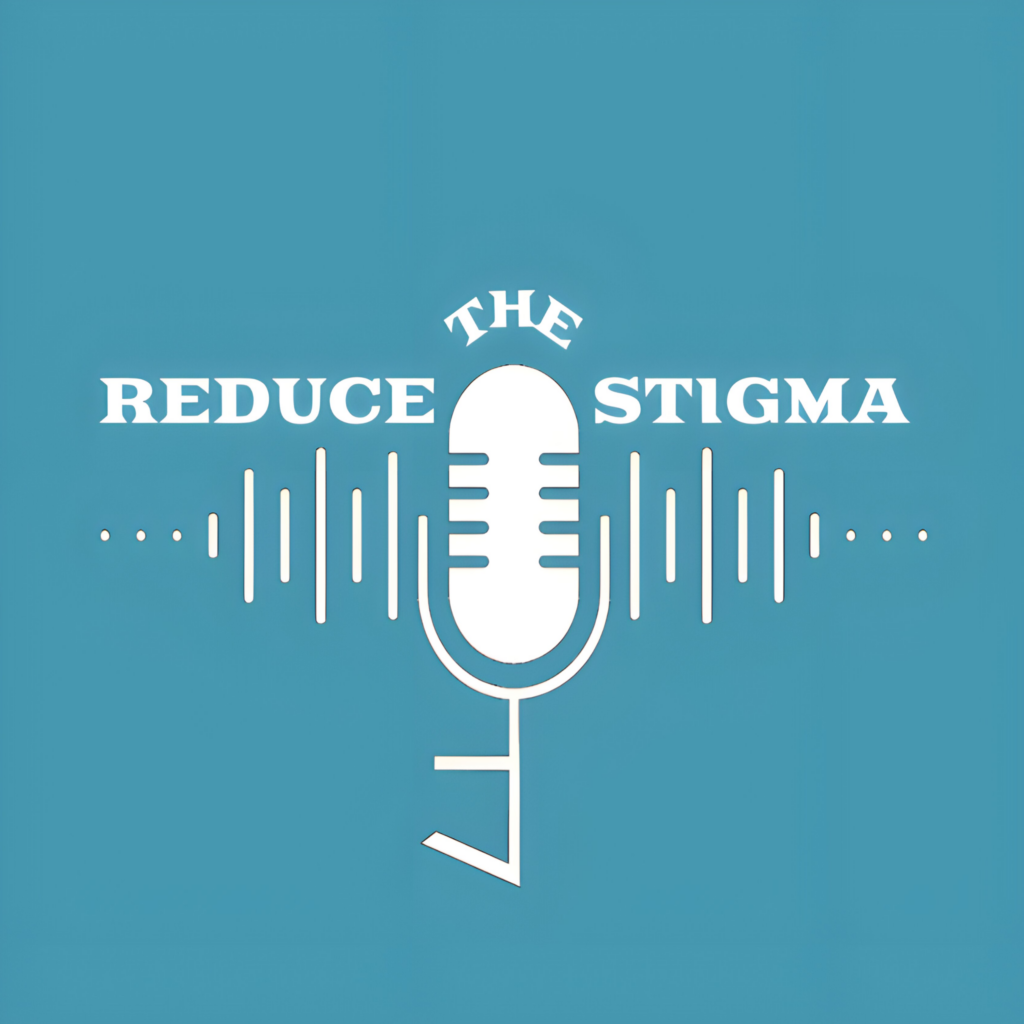



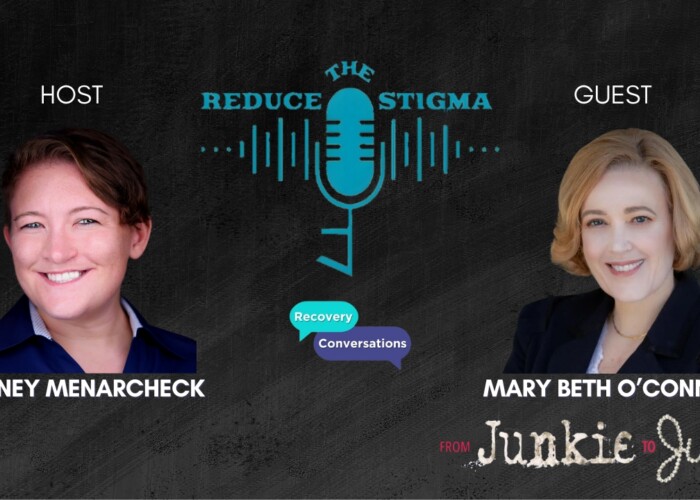
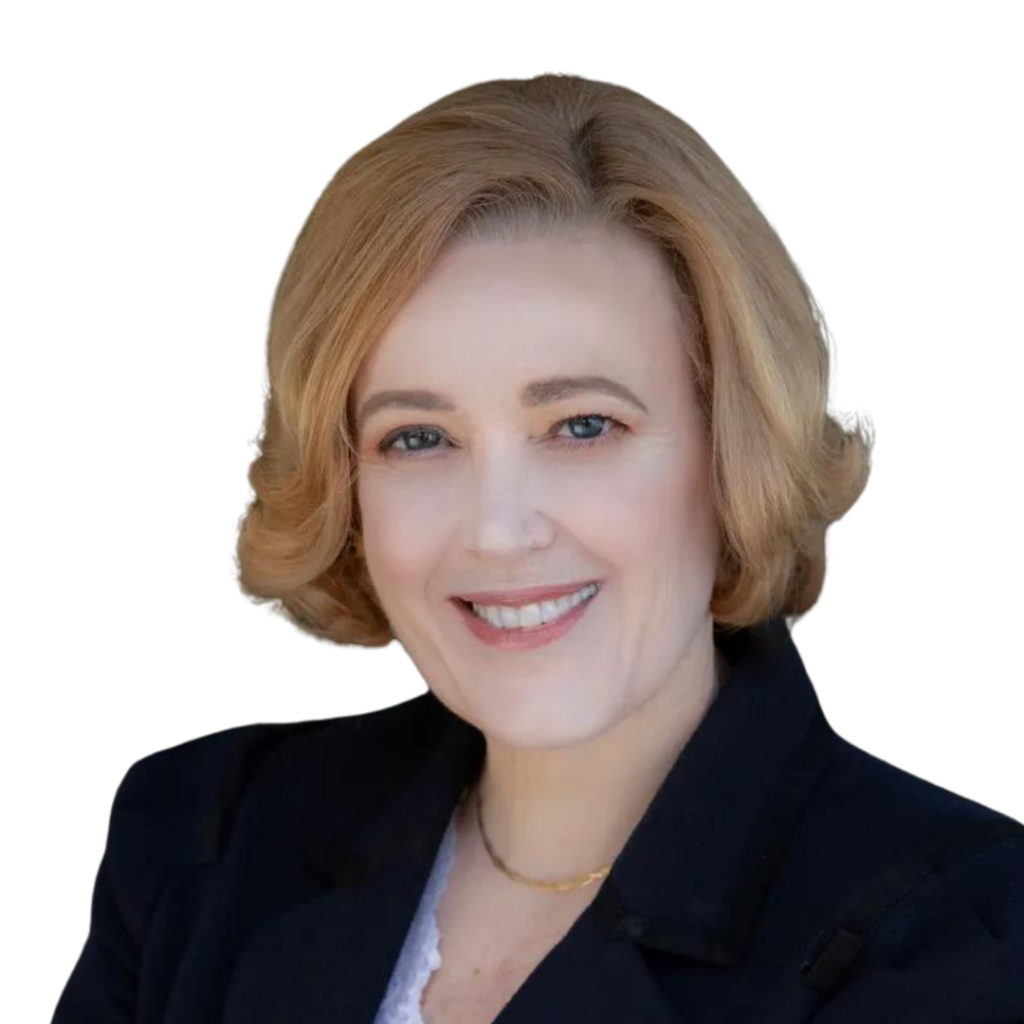
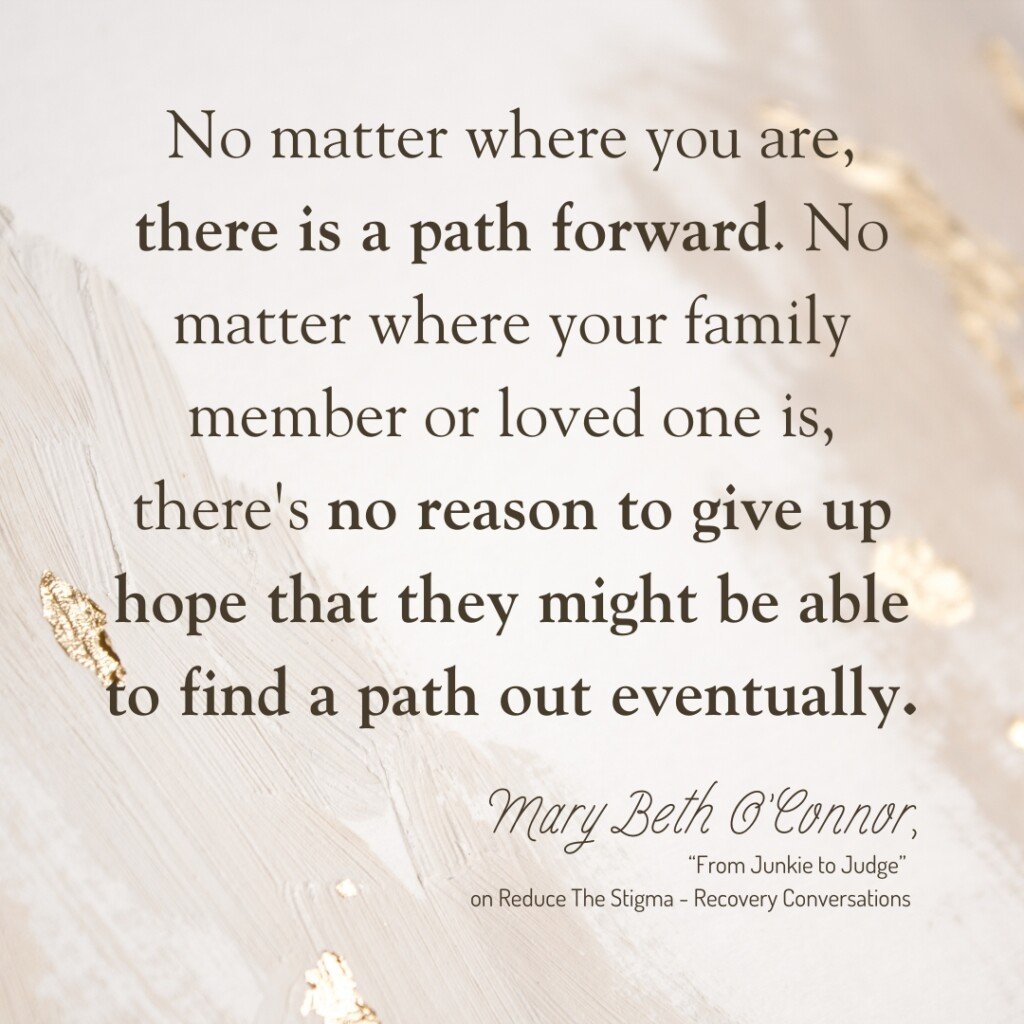
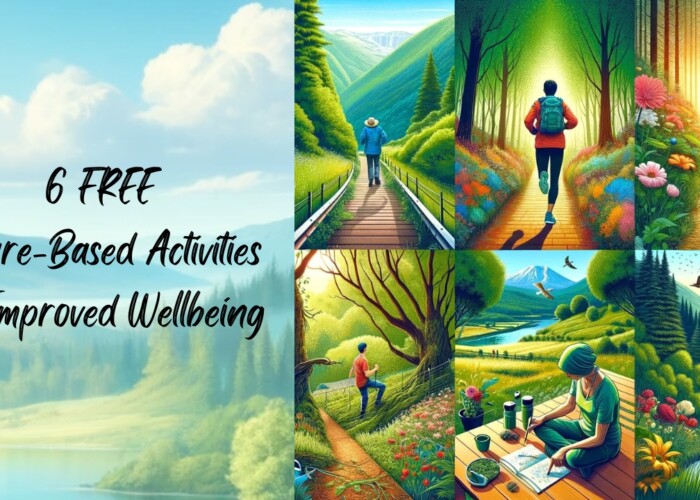
 Did you know that nature has a profound impact on our mental health and well-being? Research has found that engaging with nature can reduce stress, improve mood and anxiety levels, benefit cognitive function, reduce depression symptoms, boost creativity, provide physical health benefits, and positive long-term impact on mental health and wellbeing.
Did you know that nature has a profound impact on our mental health and well-being? Research has found that engaging with nature can reduce stress, improve mood and anxiety levels, benefit cognitive function, reduce depression symptoms, boost creativity, provide physical health benefits, and positive long-term impact on mental health and wellbeing. 